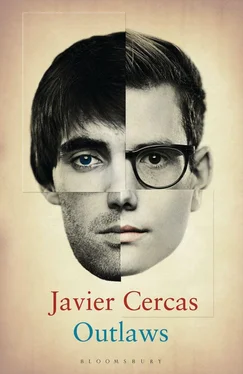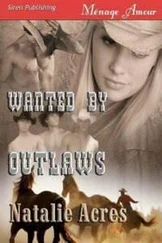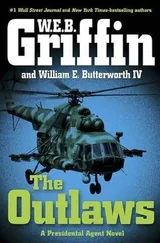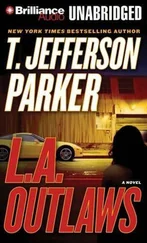‘The trial over the accusations from the Brians prison guards was in March or April of 2000, when Zarco had been incarcerated in Gerona Prison for several months. The hearing was held in a Barcelona court. There I discovered something important: at least in Catalonia, at least in Barcelona, Zarco’s myth had not disintegrated, and Zarco was still Zarco. It’s true that his public appearance didn’t arouse the kind of expectation it would have done ten years earlier, when he was a celebrity, but it attracted enough journalists and spectators so that, in order to avoid interruptions or disturbances, the judge ordered the courtroom cleared and wouldn’t allow anyone in who didn’t have something to do with the trial. The fact that Zarco still enjoyed considerable pulling power with the media was, for me, a first success; the second was the outcome of the trial: Zarco was sentenced to three months’ imprisonment, much less than we’d anticipated, so we were all satisfied and didn’t even have to appeal the judgment. Tere and I toasted the triumph with French champagne, one night at my place, and Zarco and María thanked me and congratulated me though not effusively; none of the three asked how much they owed me, but that victory made me decide to set out for them the plan I’d been secretly thinking through — secretly from everybody, including Tere — since I’d taken over Zarco’s defence and in that first interview he had asked me to look after not just this initial trial, but all those he had pending.
‘My plan’s objective was to get Zarco out of jail in two years. To achieve this I had to begin presenting, in the Barcelona court that had ruled on the Brians matter, an appeal for commutation or accumulation of sentences, so that the many convictions and the hundred and fifty years of prison time he had pending would be reduced to a single thirty-year sentence, the maximum time an inmate can spend in a Spanish prison. This was as far as the judicial phase of the operation went. Success was guaranteed this far; or almost: it was very improbable that the court would not grant what we were requesting, but if it did not, it was always possible to present an appeal for annulment before the Supreme Court. Be that as it may, once the sentence accumulation had been successful Zarco could apply for and obtain leave and, eventually day release, which would authorize him to spend the workday outside the prison and return at night to sleep there.
‘At this point the political phase of the operation began, more complex and less certain. It began with the petition for a partial reprieve and ended ideally with the granting of a pardon and conditional release, a round-the-clock freedom subject only to the condition that Zarco not commit another crime. The problem, of course, was that getting a pardon was not easy, and much less so in Zarco’s case. The application for the pardon could be submitted to the Ministry of Justice as soon as Zarco returned normally to prison after his first leave; then the Minister of Justice would have to raise it before Cabinet, which would have to approve it. The matter then consisted of how to get the Minister of Justice to approve our request. In accordance with my plan, this was only possible if three conditions were fulfilled. In the first place — and most importantly — we had to revive Zarco’s media profile; and to revive it we had to mount a press campaign that would bring back part of his lost prestige and convince public opinion that he deserved a pardon and his freedom. Although Zarco himself, Tere and I would have to participate in the campaign, most of the weight, according to my plan, had to be carried by María: she was the one who had the key to Zarco’s liberty because she was the one who could move the journalists and public opinion with her idealized vision of Zarco and her relationship with Zarco. In the second place, once the press campaign was launched we had to get personalities from public life to support the request for the pardon and we had to make sure the Catalan government would endorse the request before the central government. And, in the third place, we had to provide Zarco with a family and work situation that would make his fitting into society credible.’
‘And what did that mean?’
‘It meant that Zarco had to find a job and he had to marry María. Neither of the two things were difficult, but Zarco’s face twisted into a grimace as soon as I mentioned them, one afternoon in the prison interview room. Look, Gafitas, he huffed. I can see myself working, but do me a favour and don’t bust my balls about María. Naturally, I had foreseen this reaction: by this stage I was already aware that Zarco just considered María as the last and pathetic admirer from his glory days, and the only thing that linked him to her was a dry practical interest; and, because his reaction didn’t take me by surprise, I immediately insisted, reminded him of what he already knew: I argued that, for a judge, matrimony was a guarantee of stability and that, for our purposes, María was the ideal wife and perfect propagandist, I reminded him that if he wanted to get out of prison he had to make sacrifices, I assured him that the marriage didn’t have to be anything more than a mere formality or last any longer than strictly necessary. With no comeback to my arguments, a shadow seemed to fall over Zarco; he shrugged, said: Yeah. But then he came back to life to add: And what if María doesn’t want to? Why wouldn’t she? I asked. Well, he answered. Our thing is a circus: in prison it might be fun for her, but out there it won’t be. Don’t worry, I said, blocking that way out for him too. She’ll want to. Remember that for her it’s no circus.
‘We were sitting in our usual way in the interview room, Zarco on his chair and facing the bars and the glass, me at my desk and facing the wall, leaning over my notebook. I remember it was a Friday and as usual in those days I was elated: Tere had phoned me that morning at the office and we’d arranged to get together that night at my place; after work, I’d have a couple of beers with Cortés and Gubau at the Royal; my daughter was arriving from Barcelona at noon the next day. That afternoon my only concern was to convince Zarco to approve my plan; once he’d approved it, I’d explain it to Tere and María and put it into action.
‘I raised my eyes from my notebook, and Zarco and I looked at each other. I don’t know, he said, before I could insist again. Maybe you’re right. I leaned over my notebook again and said: I can’t see any alternative. I also said: We have to be realistic. Or something equally trite. Then, with the reckless confidence of one who thinks he’s the winner before he’s won, I added: Unless you were going to marry someone else, of course. Someone else? asked Zarco. Who else? I turned to him and joked: Anyone but Tere. Why would I want to marry Tere? replied Zarco, surprised. I regretted my recklessness. It was a joke, I reassured him. Besides, I didn’t say you wanted to marry Tere. Sure you did, he insisted. That’s what you just said. I didn’t say that, I insisted. I only said, and as a joke, that you can marry anyone you want except Tere. And why can’t I marry Tere? he asked. I was about to say: Because I’m going out with her; or worse still: Because I’m going to marry her. I didn’t say it, and I wonder if, in spite of Tere’s demands of confidentiality, she had told Zarco that we were seeing each other. I gave his question a professional answer: It would be inadvisable. She’s your lifelong accomplice, she’s been in jail, she’s been on drugs, no one would believe you’d reformed. I repeated: It would be inadvisable.
‘Zarco said nothing. Suddenly, a smile revealed his blackened teeth. What’s up? I asked. Nothing, he answered; then he contradicted himself: You’ve always thought Tere and I were hooked up, haven’t you? I wasn’t expecting the question; I asked: And weren’t you? The smile still on his face, he seemed to reflect on it. For a moment I thought of reminding him of the first part of Wild Boys , where Zarco is going out with a girl that could be Tere and with whom Gafitas falls in love; but Zarco and I had still never discussed Bermúdez’s films, and I felt there was no sense arguing against reality with fiction. Zarco asked: Do you know how long I’ve known Tere? I said no. Since we were four or five, answered Zarco. Her mother and my mother are cousins. Actually that’s why my mother and stepfather moved to Gerona. And why I came later. I waited for him to go on with the story, not knowing where he was going with it. He didn’t go on. Got to hand it to you, he said. What? I asked. He answered: You thought Tere and I were hooked up and meanwhile you hooked up with her. Zarco was referring to the night when Tere and I did it on the beach at Montgó, after coming out of Marocco. I told you about that, don’t know if you remember.’
Читать дальше












